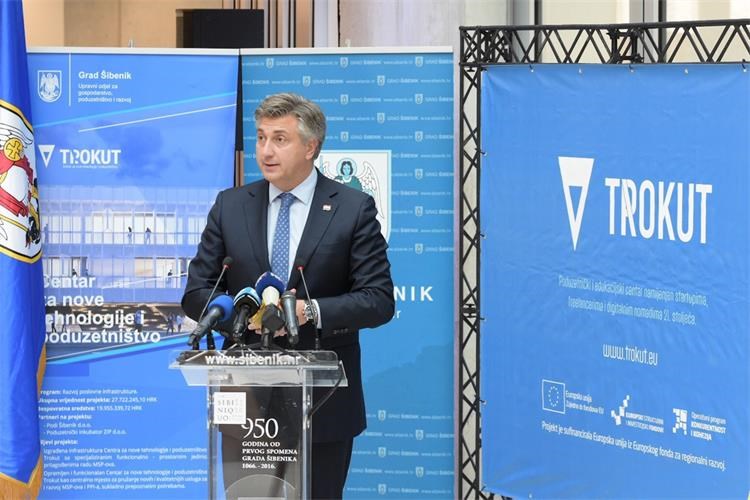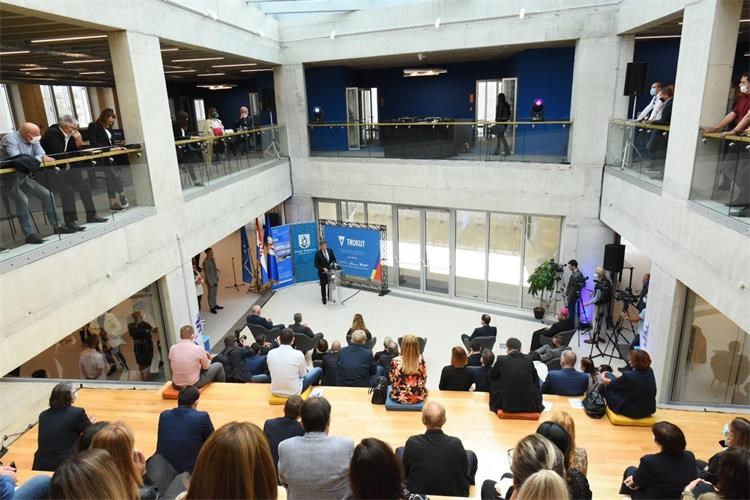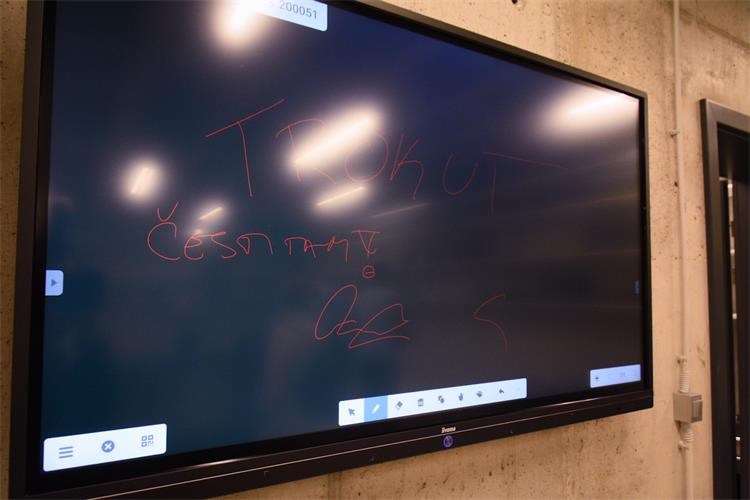- Published: 28.09.2020.
The new Center for entrepreneurship and new technologies "Triangle" puts Šibenik on the new tech map
Prime Minister Andrej Plenkovic on Monday visited the coastal city of Sibenik and after talks with mayor Zeljko Buric and county head Goran Pauk, he said he was glad local priority projects were either being implemented or prepared.
"I'm glad we will visit a new centre which will serve to educate young people who with their start-up businesses want to follow in the footsteps of our giants Infobit and Nanobit. The centre, a HRK 28 million investment, to be launched today, shows that the city and Sibenik-Knin County have been following the trends of the fourth industrial revolution, digital transformation and new technologies," Plenkovic said, adding that he was confident the recently amended law on foreign nationals would make Sibenik and Sibenik-Knin County attractive to digital nomads.
Damages should be paid to Varivode victims' families
As Plenkovic arrived in Sibenik after a visit to Varivode, a village in the Sibenik hinterland where he attended a commemoration for nine Serb civilians killed in the aftermath of the 1995 Operation Storm, reporters wanted to know if the victims' families would receive compensation.
"Court decisions awarding damages should be implemented, and as for responsibility, there is no statute of limitations on war crimes, so we expect the competent institutions to continue with their work. We have stepped up work on the prosecution of war crimes... a lot of time has passed and it is increasingly difficult to find evidence and witnesses. Both police and specialised prosecutorial offices will continue working on that," he said.
Important to talk with reps of all peoples in Bosnia and Herzegovina
"We have a continued dialogue with representatives of the peoples in Bosnia and Herzegovina for some time now. I think that it is important to open communication with all the peoples in Bosnia and Herzegovina. Mr Izetbegovic is a very influential person, particularly as the leader of the SDA - (Bosniak Party for Democratic Action), said Plenkovic.
"With today's visit we are continuing dialogue on the future of Bosnia and Herzegovina, the status of Croats, certain legislative solutions, equality and here, I primarily think of the election law," Plenkovic underlined.
He added that ahead of the 25th anniversary of the Dayton Peace Accords, the incumbent election law "undermines the spirit and letter of that agreement."
Two weeks ago Plenkovic received the Serb member of the tripartite Bosnia and Herzegovina presidency, Milorad Dodik, which resulted in various reactions in Bosnia and Herzegovina.
"That visit had a multifaceted benefit so that we can open many issues that we are ourselves are dealing with. Croatia is a significant partner to Bosnia and Herzegovina and the fact is that we will be faced with a lot of similar meetings at various levels. That will greatly assist Bosnia and Herzegovina so that things are not swept under the carpet," Covic told a press conference last week in Mostar.
Covic added that there is no reason why Dodik, as the legitimate representative of the Serb people, should not meet with anyone in the world, including senior officials in Zagreb.
Izetbegovic believes that with his experience, Plenkovic could help mend relations between Croatia and Bosnia and Herzegovina and between Croats and Bosniaks but warned that steps like meeting with Dodik in Zagreb do not contribute to that.
The foreign ministers of both countries - Gordan Grlic Radman and Bisera Turkovic too will attend today's meeting.
Addressing reporters in regard to a visit by US State-Secretary Mike Pompeo, Plenkovic said in Sibenik today that the key topics on the agenda of their meeting in Dubrovnik on Friday will be the '"Visa Waiver Program, and the double taxation avoidance agreement as well as relations ins Southeast Europe."
Croatia is one of four EU member states whose citizens still need a visa to visit the USA. Plenkovic underlined that that is a problem "that has been bothering us for a long time, practically three decades," but he is convinced that the criteria of less than three percent of visa applications being rejected has been met and that problem will be resolved.
There will also be talk of investments, US-EU relations and the "atmosphere in the USA ahead of the presidential election," the Croatian premier added.
Text: Hina



